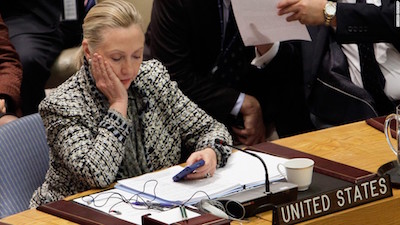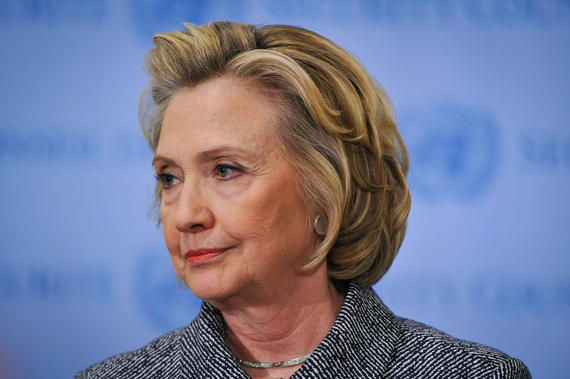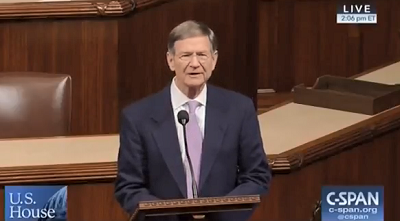Untouchable No More
 As a former prosecutor and county Judge, I am very concerned by the press conference held on July 15th the Director of the FBI, James Comey. The press conference was carried live on many news channels, and Director Comey spoke in great detail (over 2,300 words), regarding procedures in her use of a personal email server while working as Secretary of State.
As a former prosecutor and county Judge, I am very concerned by the press conference held on July 15th the Director of the FBI, James Comey. The press conference was carried live on many news channels, and Director Comey spoke in great detail (over 2,300 words), regarding procedures in her use of a personal email server while working as Secretary of State.
During this press conference, Director Comey stated: ‘‘Although there is evidence of potential violations of the statutes regarding the handling of classified information, our judgment is that no reasonable prosecutor would bring such a case.’’ Not only did this press conference likely violate FBI procedure, such a public accounting of alleged misdeeds while not recommending charges made it nearly impossible for the Department of Justice to do their job in this case.
The FBI is an investigating agency, not a prosecuting agency or a judge and jury. Such a public determination of a case is unprecedented and highly prejudicial. The FBI should investigate and research the facts; determining whether or not those facts constitute a crime is not their job. It appears that Comey’s statement was a violation of internal DOJ procedures.
Per DOJ regulations, in federal cases, the prosecutor’s decision to bring criminal charges is governed by the United States Attorney’s Manual. USAM 9–27.000, titled ‘‘Principles of Federal Prosecution’’ contains the DOJ’s written guidance to prosecutors about decisions to initiate or decline prosecution. Specifically, 9– 27.220(A) instructs prosecutors to file criminal charges in all cases where there is a violation of federal law and the evidence is sufficient to obtain a conviction, unless one of three grounds exist: Lack of a substantial federal interest; The defendant is subject to prosecution in another jurisdiction; or The existence of adequate non-criminal alternatives to prosecution. It is not clear from the Comey statement which of these exceptions he thinks applies in this case.
Regardless, the determination of whether or not to pursue charges in the case does not reside with an investigative agency like the FBI. By publicly making this statement, Director Comey made it practically impossible for DOJ to fully fulfill their duties under 27.220(A). There is no provision or practice that permits the FBI (or any other federal law enforcement agency) to make recommendations to the prosecution in such a public manner. This statement violated practice and procedure and further shows that this investigation was flawed from the beginning. Secretary Clinton received different treatment than any rank and file employee at the State Department would have received in such an instance.
A rank and file employee would have, at the very least, lost their security clearance had they engaged in conduct similar to that of Secretary Clinton. In the FBI ‘‘Manual of Investigative Operations and Guidelines’’ section 1–2, a number of policies and procedures are laid out for how the FBI should behave and conduct criminal investigations. Specifically, section 1–2 (1) states: ‘‘The FBI is charged with the duty of investigating violations of the laws of the United States and collective evidence in cases in which the United States is or may be a party in interest’’. In addition, section 1–2 (3) states: ‘‘Results of investigations are furnished to United States Attorneys and/or Department of Justice.’’ There is not a section in this manual that permits or directs the FBI to publicly state that the facts they investigated were not sufficient to warrant prosecution; in fact the manual clearly indicates that these facts should be turned over to either a US Attorney or the DOJ when there is sufficient evidence that a crime occurred. Director Conley stated that ‘‘there is evidence of potential violations of the statutes regarding the handling of classified information’’.
Despite this finding, Director Comey appears to have veered from FBI procedures to make a public statement that no prosecution was warranted. It is unclear what legal standard was used to make this determination and appears to be far outside what is permitted under the policies and practice of the FBI. There was a time when the FBI was known as ‘‘The Untouchables’’ because they were above politics; those days are over.
And that’s just the way it is.








